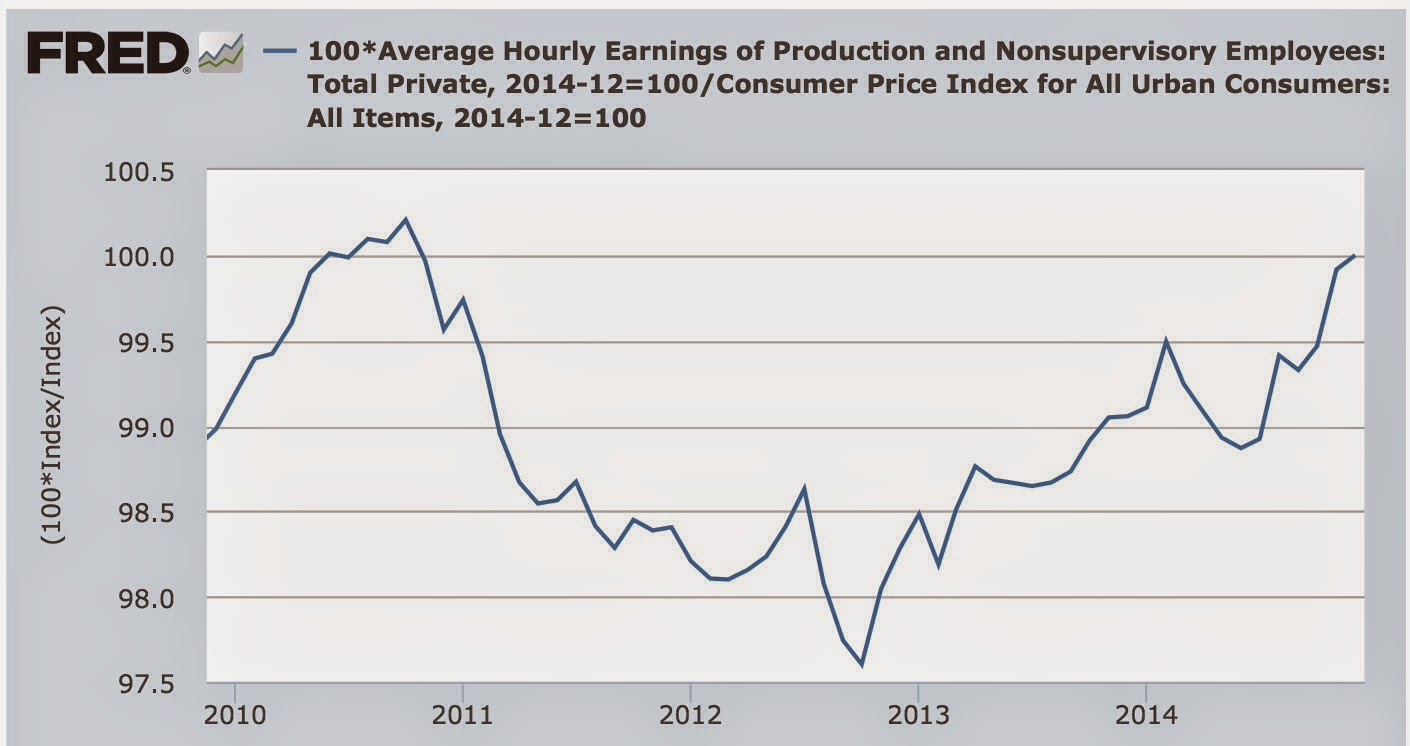The market is clearly in an uptrend, with a trend line connecting the lows of 2012 and 2014. There are several different sell-offs, all of which use one weekly EMA for technical support. However, two important technical indicators -- the weekly MACD and RSI -- are weakening, and have been for the better part of the year. This means that momentum and price strength is declining, lowing upside momentum. Overall this plays into the shorter-term dynamic that the market continues to consolidate:
The daily chart shows that since the beginning of the year, prices have been trading between the ~99-100 and 105 level. The market is technically in an uptrend, as a trend line does exist that connects the lows of early April and mid-October. But, it's a very unsatisfying trend as there is a great deal of action above that line. And starting in December we see a clear decline in momentum and negative readings from the CMF combined with an uptick in volatility. All of this furthers the consolidation argument.
Also consider that underneath the surface there is clearly a move to safety, as seen in these two charts:
The top chart shows the year-to-date performance of the SPYs relative to the IEFs, with the treasury market clearly outperforming. And within the market, the defensive sectors of utilities, health care and staples are the winners. But a change may also be afoot:
The IEFs (top chart) broke a 30-day upward trend line last week . And the SPYs (bottom chart) not only broke through the upper trend line of their consolidation, but are also in a 5-day rally.
And the more aggressive sectors clearly outperformed the more defensive last week, with technology and industrials catching a strong bid.
So, what does all this mean? At the macro-economic level, the US economy is doing well, but the other developed economies are facing headwinds, as highlighted by last week's central bank action: the ECB finally started a QE program, the UK is backing off potential rate hikes and Canada cut rates. These developments are creating headwinds. But the US economic uptrend is clearly supporting a decent bid for US equities.










